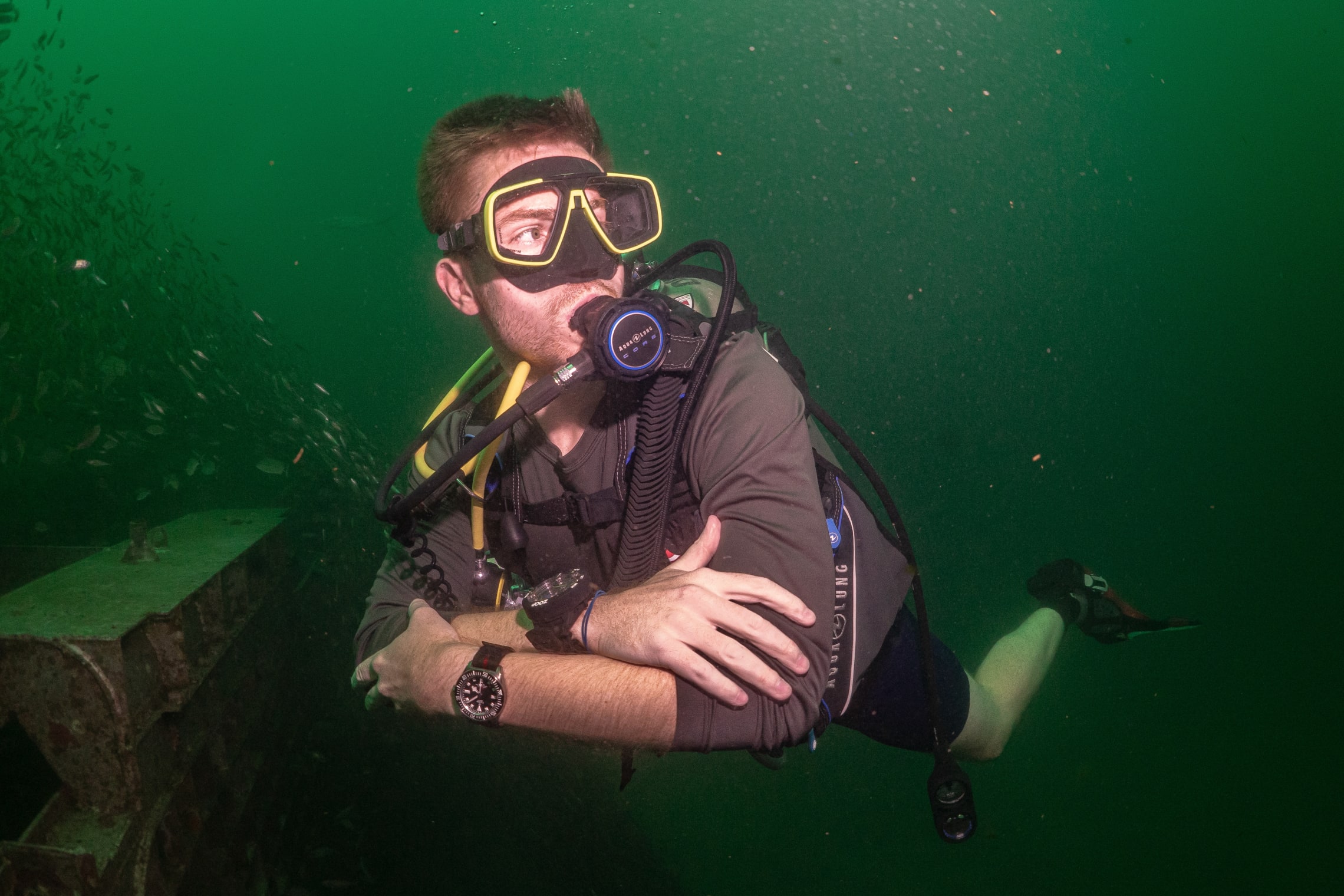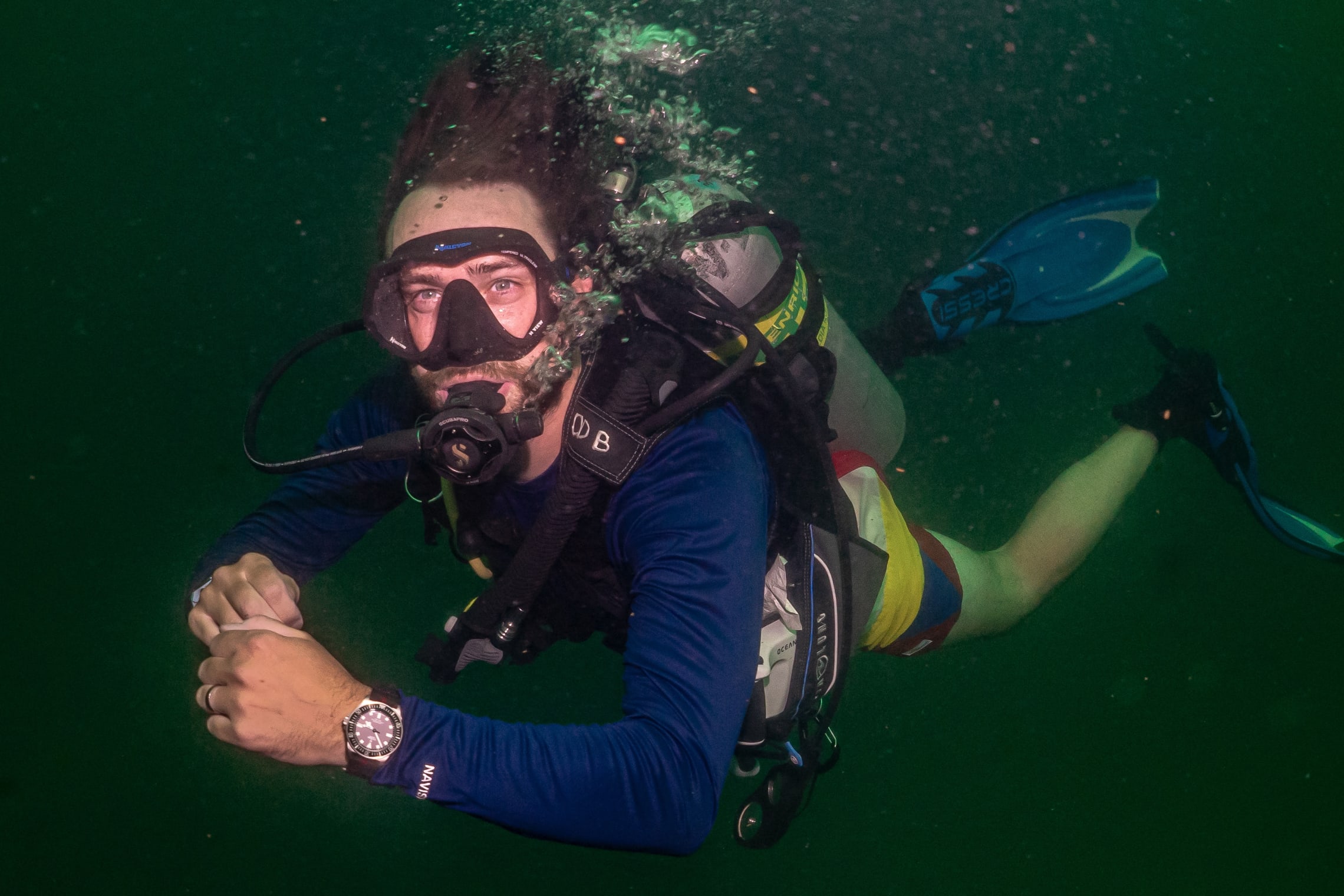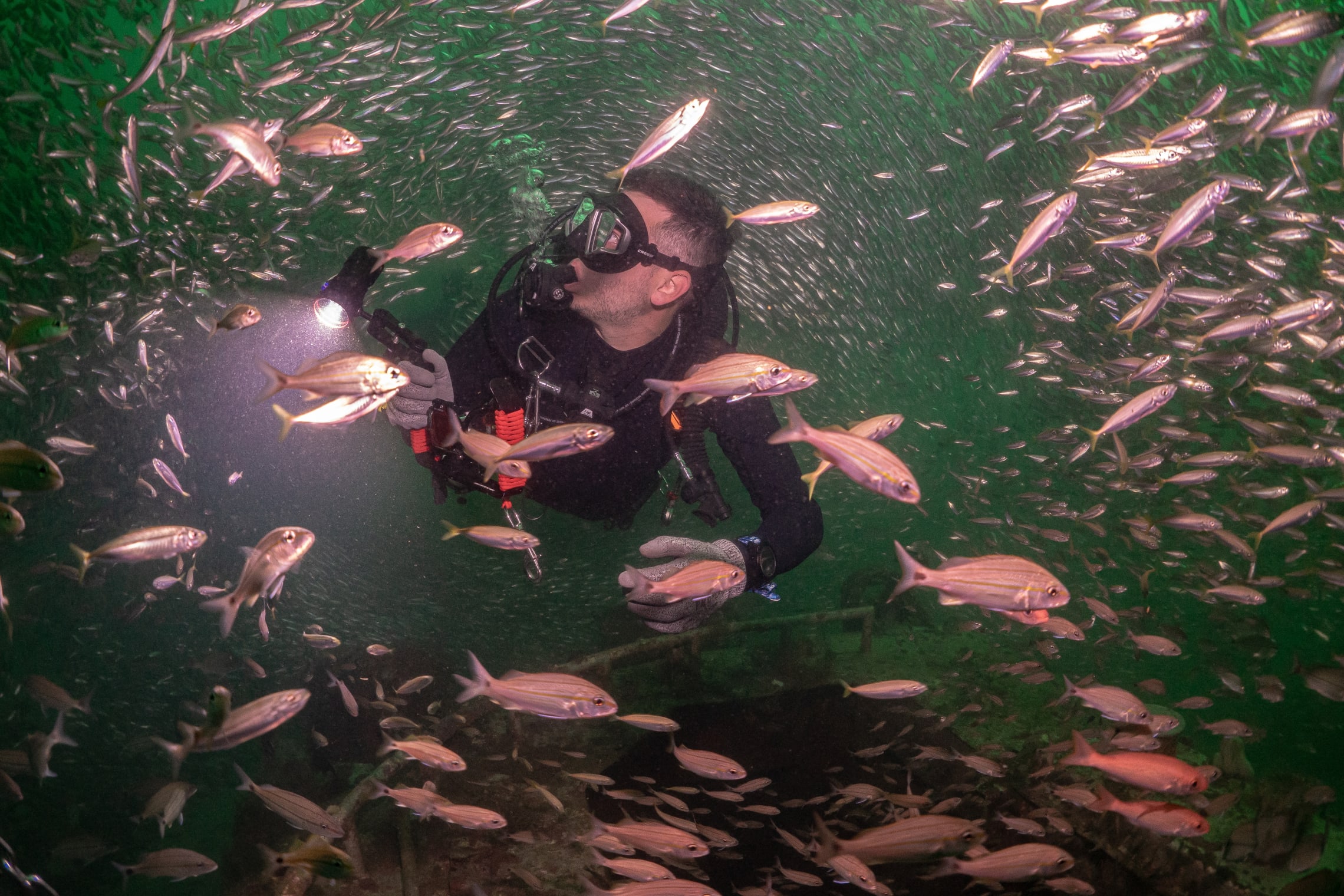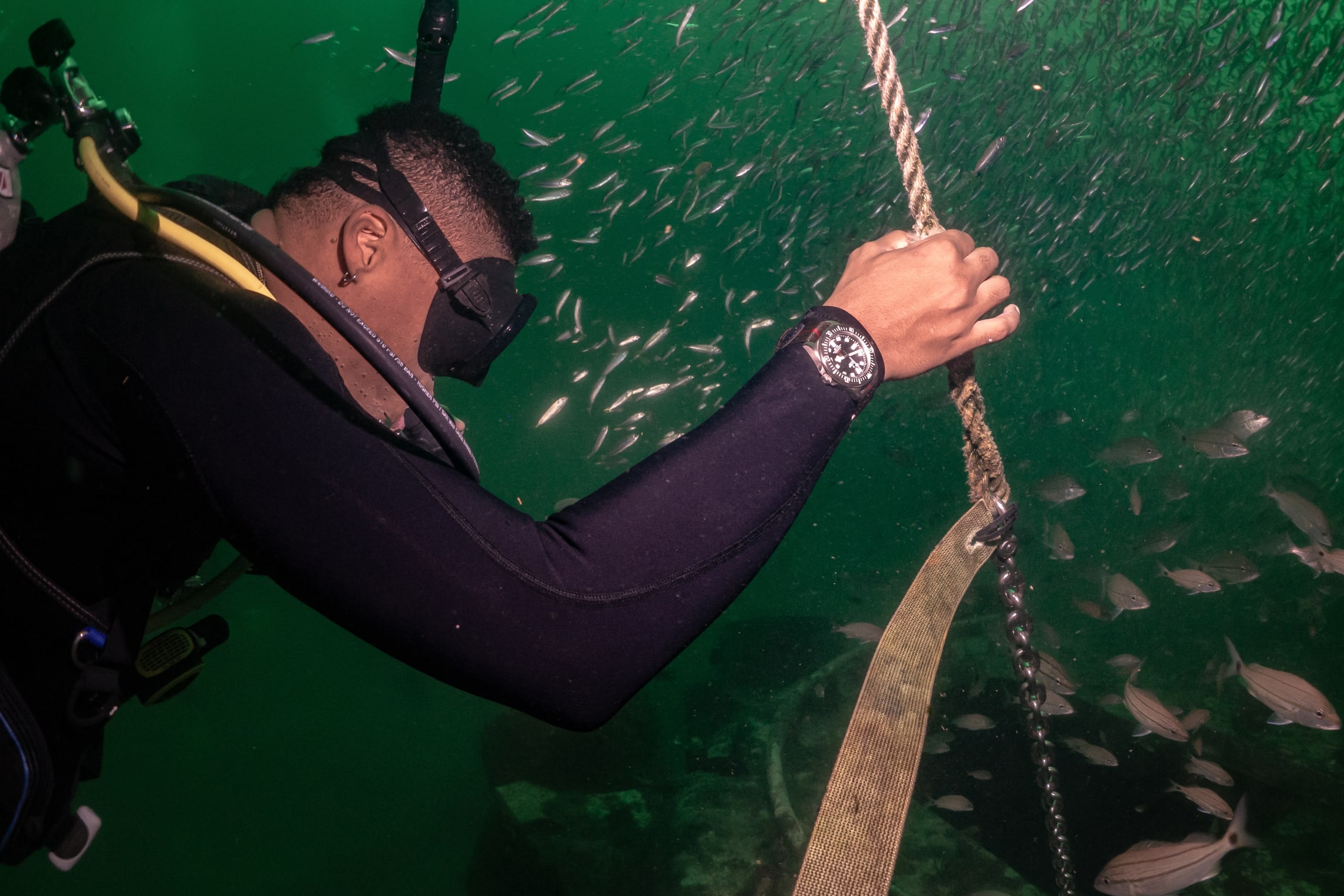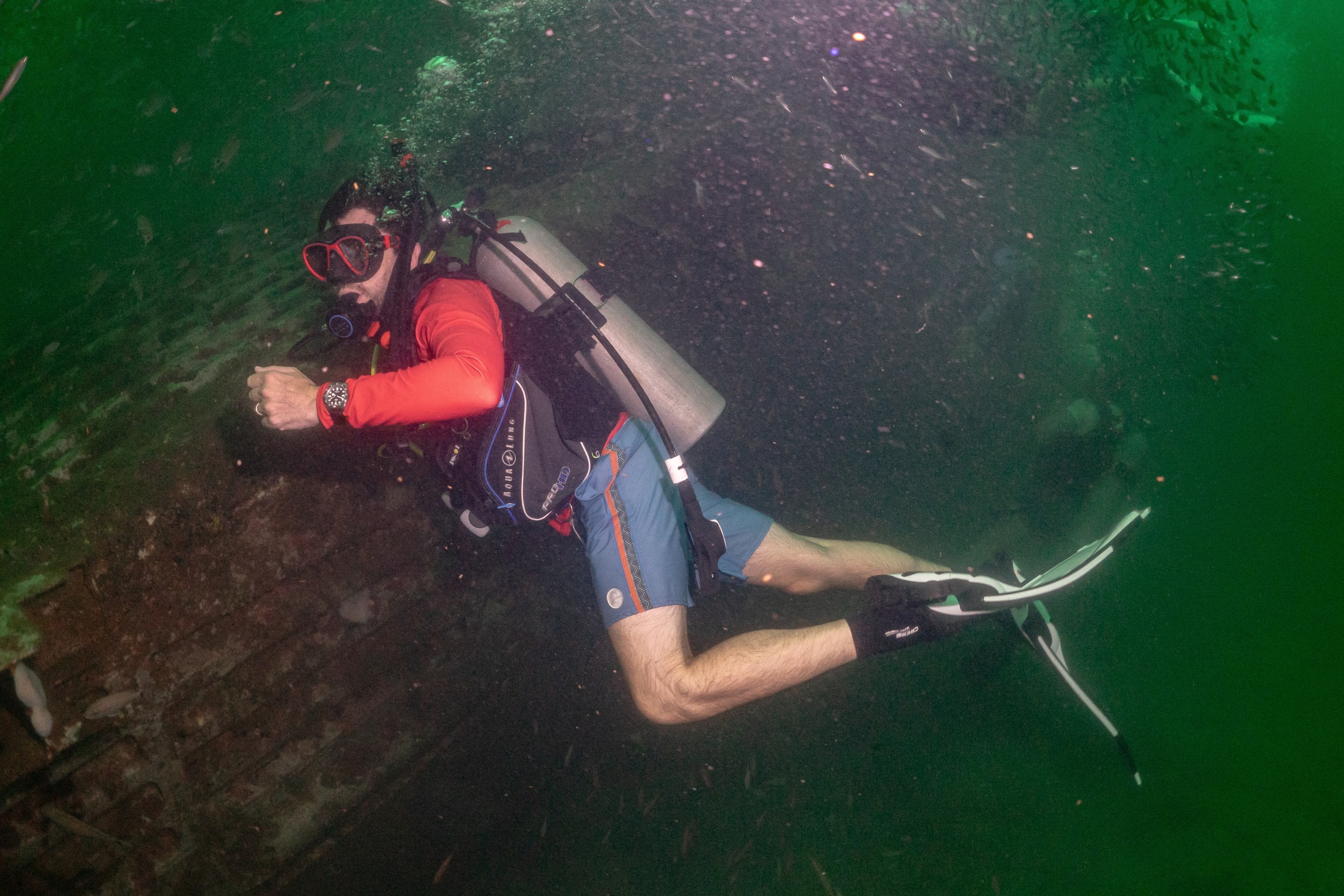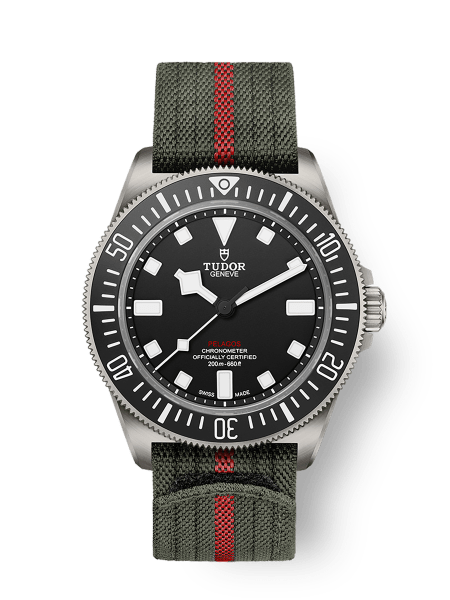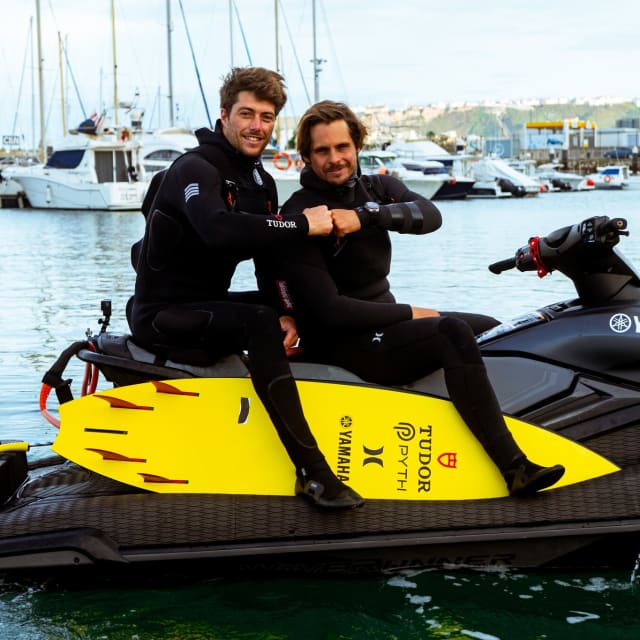Diving Deep With the New TUDOR Pelagos FXD
Submerging into the historical relationship between TUDOR and the US Navy
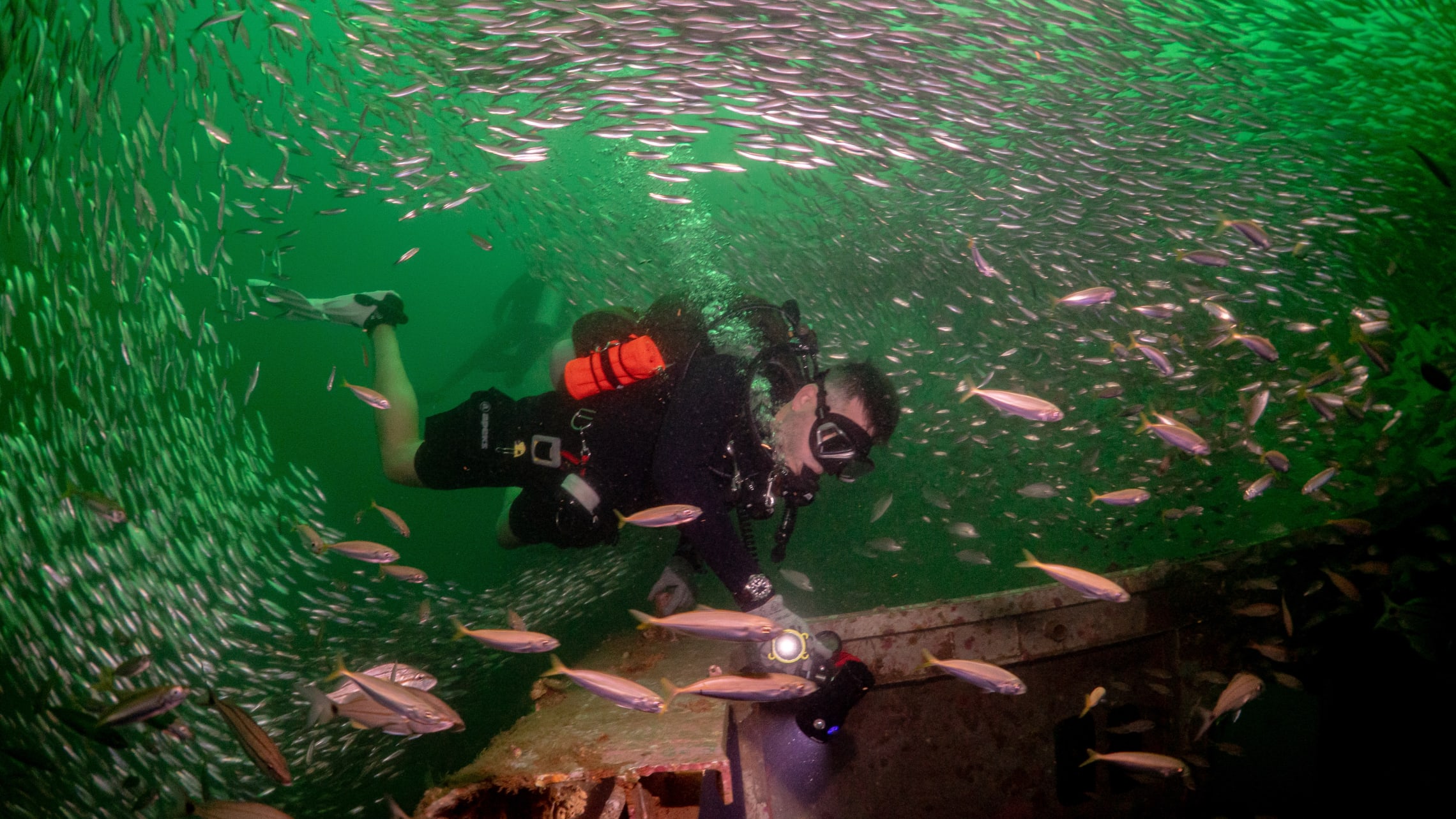
Inside the base known as Naval Support Activity Panama City, situated on the Florida panhandle is the Naval Surface Warfare Center-Panama City Division, Naval Diving and Salvage Training Center, and Navy Experimental Diving Unit. It’s where most of the Navy’s divers are trained, and Panama City has become the spiritual home of Naval diving past and present.
In other words, it’s the perfect place to introduce the brand-new TUDOR Pelagos FXD, made as an homage to the men and women of the US Navy carrying out their daring duties.
But simply showing people the watch isn’t enough to convey the true purpose and intent of its design. To do that, TUDOR encouraged several certified divers from the watch media to take the watch diving in the Gulf of Mexico, in the very same waters that SEALAB 1 was tested before being deployed in 1964.
The Dive Site: USN Prototype LCAC Jeff A Hovercraft 30° 04.249’ N – 085° 48.725’ W
In 1977, a prototype LCAC (Landing Craft, Air Cushioned) began testing and evaluation at the Naval Ship Research & Development Center in Panama City, FL. The craft, produced by Bell Aerospace, used four ducted propellers as a propulsion system to haul sixty tons of cargo from ship to shore. It was the largest military hovercraft of its time and achieved an impressive 50-knot cruising speed.
The prototype was rejected by the Navy before being leased to a civilian organization that outfitted the craft for service in the Arctic offshore drilling area of Prudhoe Bay and Harrison Bay regions of the Beaufort Sea, Alaska.
After its duty in the Arctic, the craft made it back to Panama City where it was written off by the Navy and turned over to the Man in the Sea Museum. The museum subsequently sunk the vessel to serve as a dive site. The 96-ft craft now sits 74 feet deep a few miles off the coast Panama City. Underwater Photographer Jason Heaton was on hand to capture the action.
TUDOR issued each diver a new Pelagos FXD to test and evaluate during their dive.
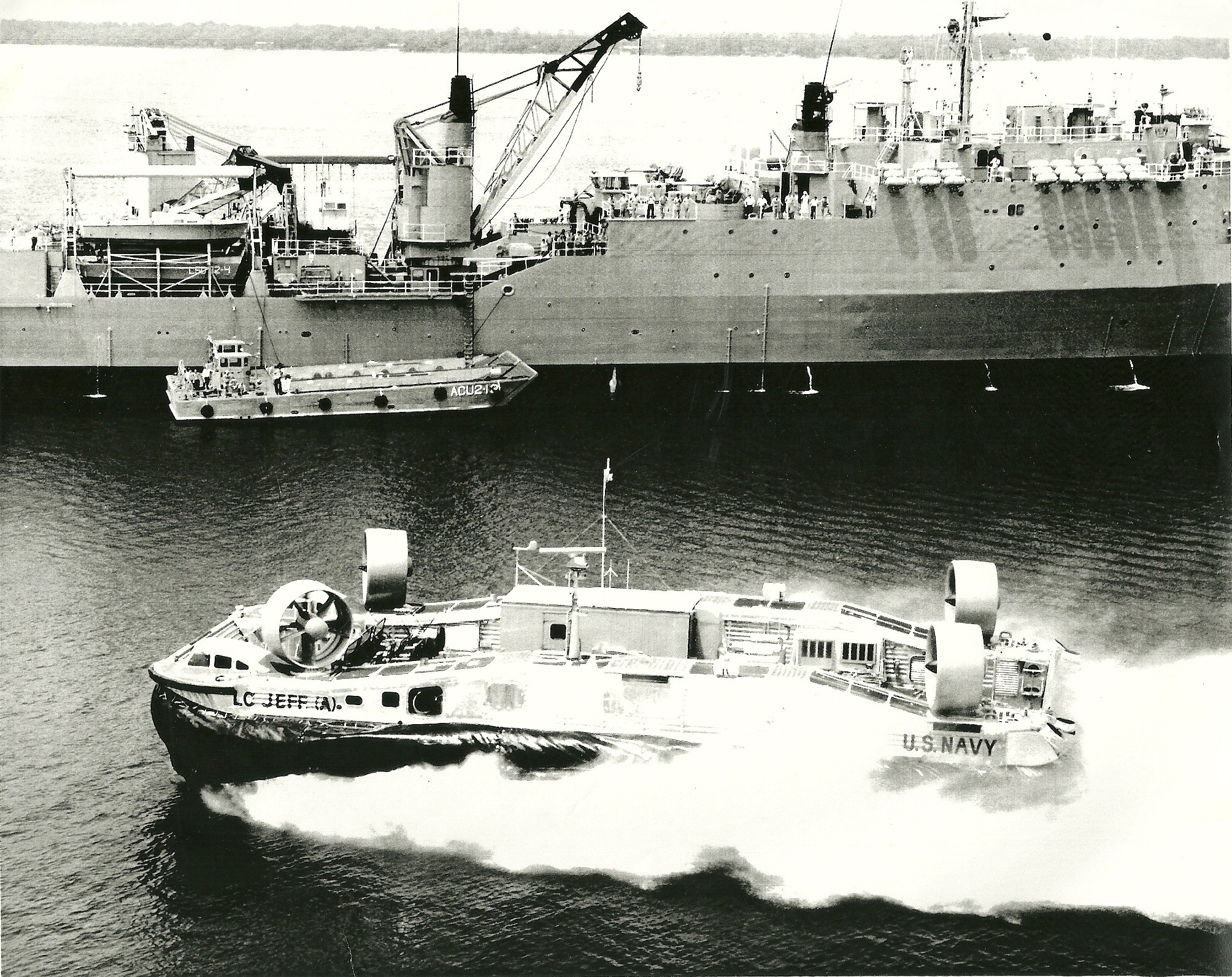
The TUDOR Pelagos FXD
The new Pelagos FXD pays tribute to decades of TUDOR watches on the wrists of US Navy divers. Complete with fixed strap bars, a titanium case, a high-performance Manufacture Calibre and a unidirectional elapsed-time rotating bezel, it comes as the ultimate modern “Milsub”.
As early as the mid ‘50s, TUDOR diving watches were being tested and evaluated by a number of outfits inside the US Navy, and by 1958 they were officially adopted by the Navy and purchased for the purpose of issuing them to divers operating in various units. This Pelagos FXD model is the spiritual successor of those watches. The nomenclature hints at the background of the watch, with FXD referring to the incredibly robust FiXeD strap bars of the case. The model represents a modern, high-performance and robust take on the famed “Milsub” (short for Military Submariner) of yesteryear. Visually, it’s most in line with a late ‘60s-era TUDOR Oyster Prince Submariner reference 7016; it incorporates elements from the US military specifications for diving watches, such as fixed spring bars, as well as details inspired by other generations of issued TUDORs, like pointed crown-guards typically found on early TUDOR Submariners.
Watches mentioned
Related articles
View all news
The Tudor Pro Cycling Team Is Hitting The Gravel!
Meet the Gravel Division of the Tudor Pro Cycling Team, ready to take on the world's most challenging gravel races.
#news
The TUDOR Crossover In Melbourne We Didn't Know We Needed!
TUDOR Worlds collided at the Australian Grand Prix this weekend.
#news
With Visa Cash App RB Formula One Team, TUDOR Goes All In
Tudor is expanding its commitment to VCARB for the 2025 season!
#news
A Double Victory At Tudor Nazaré Big Wave Challenge!
Nic Von Rupp and Clément Roseyro came out on top with the “Best Team Performance” prize and the “Best Male Performance” one for our new Ambassador
#news
